- Home
- Elif Shafak
The Happiness of Blond People (Penguin Specials) Page 2
The Happiness of Blond People (Penguin Specials) Read online
Page 2
Today European policymakers face a fundamental dilemma. On the one hand, there is a visible need for socioeconomic integration and a stronger emphasis on intercultural, interreligious exchange; however, no visible consensus as to how to achieve that end exists. On the other hand, there is suspicion, latent or manifest, of Islam’s presence in European society – with unease whipped up from time to time by populist politicians and ultra-right ideologues. Bigotry, xenophobia, jingoism, and local and global terrorism all contribute to the deterioration of the ongoing crisis.
At present, we are witnessing the demise of the previous political models on immigration. Germany has abandoned Multikulti, an ideal society in which natives and migrants live side by side without necessarily mixing or abandoning their distinctive identities. In Holland, Finland, Denmark and, recently, Norway there have been fervent debates about how far to push integration. In the UK financial turbulence and budget cuts have triggered social concerns about unemployment, which in turn have shaped the debate on immigration. In France the headscarf is banned in state schools and public buildings – a decision that stirred much controversy. More and more, Europe looks like a boiling kettle, with water churning deep within. In the public eye and mainstream media, the view of ‘inside’ is that it is becoming less and less safe. No one has forgotten that the London bombings were carried out by British Muslims from ‘here’, rather than by Al Qaeda operatives from a faraway ‘there’. There is a lot of talk about ‘the enemies within’ and very little trust – certainly not enough to dispel the fog that prevents us from seeing, really seeing each other in a new light. Angst has hijacked the discussion on ‘Muslims in Europe’.
In the light of this stormy atmosphere, how plausible is a supranational European identity that encompasses all other identities, one that can be sustained in the long term? How can ethnic/religious/cultural/sexual minorities be encouraged to participate more openly in public discourse and how will various Muslim groups fit into the larger picture? What exactly is Europeanness? Where does it start, where does it end? Are the distinctions in the minds of politicians the same as those in the minds of artists and writers? Put differently, are the political frontiers of Europe the same as its cultural frontiers?
Today, the pace of globalization and the cross-cultural dependency that ensues make it impossible for any society or subculture to remain fully isolated. We are living in a universe in which the unhappiness of someone living in Pakistan might have a direct impact on the happiness of someone living in Canada. We are all interconnected; perhaps we always were, but today more so than ever. The bright side of this is that any positive, progressive change in one area will have repercussions on a larger geographical scale. The downside, however, is that from now on, as Milan Kundera notes, ‘nothing that occurs on the planet will be merely a local matter … all catastrophes concern the entire world.’
I was born in Strasbourg at a time when France was being rocked by wave after wave of student movements and Sartre was publicly breaking ties with the Castro regime. My parents were both leftist, idealist Turkish students furthering their education in the West. It was a precarious marriage from the start, and shortly after I was born they opted for something that was unthinkable to their parents and their parents’ generation: divorce. When I was a year and a half I was brought to Ankara and raised thereafter by two women: a well-educated, modern, urban, secular, Westernized, feminist single mother and a traditional, spiritual, sagacious Eastern grandmother with boundless compassion and endless superstitions.
The world of my childhood was a fluid universe, ever changing. Unlike the other kids in the neighbourhood, I did not come from a family in which the father was the unquestionable centre of authority. Instead, surrounded by make- believe characters and magic spells, I would spend the entire day, while my mother was at work, reading storybooks or listening to the folk tales my grandmother narrated with relish. Hopping on a flying carpet, I would land in the Kaf Mountain beyond the seven seas – the abode of all things imaginary. My first sense of belonging, and to this day the most essential one, has been to Storyland.
The gates of Storyland were made of candy floss, milky and fluffy, of a material so gauzy that they opened at the slightest breeze, leaving no one outside. What nationality, ethnicity or religious sect you were from hardly ever mattered in the Land of Imagination. On one day you would be roaming the grimy backstreets of London with Oliver Twist and mingling with pickpockets; on another you would be in France next to the charismatic Jean Valjean, running from the police. A few days later you might be having tea with Anna Karenina while tiny flakes of snow swirled and spiralled in the courtyard. Novels helped me to discover other lives, other possibilities. They gave me a sense of continuity, centre and coherence in life – the three big C’s that I otherwise lacked.
I could not help but suspect that way too often fictional characters were more ‘real’ than the people I observed in daily life. The characters in storybooks were full of conflicts. They made silly mistakes and suffered and rejoiced, loved passionately and had their hearts broken to pieces, as they were catapulted from one adventure to the next. They were delicate and strong, timid and bold, so many things at once. They were creatures in process, mesmerizingly complex, continuously evolving, striving, becoming, incomplete and inchoate. I often likened them to slices of the mosaic cake that my grandmother baked, with slivers of different colours and shapes whirling beneath the surface.
People in daily life, however, were not really becoming anything, for they had already become something. They were fathers, teachers, grocers, bosses, workers, landlords or tenants … but not beings under construction. Or so they wanted to seem. If Oliver Twist or Jean Valjean or Anna Karenina were a sentence, it would be one ending with an ellipsis, three little dots, so open-ended. If the headmaster of my primary school or our elderly conservative landlord or the grumpy man who ran the corner shop were a sentence, it would have to be one that ended with a full stop.
Around the time I was ten years old my mother became a diplomat and was posted to Madrid. A few months later I joined her. I found moving to a country where I didn’t know the language or the customs less intimidating than perplexing. The first time I was served shrimps at a dinner party, I hid the hideous pink creatures whose taste I knew nothing about under my napkin, where to my embarrassment they would be discovered by our kind Spanish host while changing plates.
From Grandma’s spiritual universe I was zoomed away to an international school where there were kids from all nationalities and I happened to be the only Turk. We were like a mini United Nations, with each of us seen as the ‘representative’ of the land from which he or she came. One implication of this was that whenever something negative occurred in relation to a country, the child associated with that country was held personally responsible – which meant mocked, ridiculed and bullied. And I had a taste of this treatment on numerous occasions. After all, during the time I attended this school a terrorist of my nationality attempted to assassinate the Pope, Turkey got nul points in the Eurovision song contest and a military coup d’état took place in my homeland. The other children asked me about the film Midnight Express, which I had not seen; they inquired whether I secretly smoked, because they thought all Turks were heavy smokers; and they wondered when exactly I would start to cover my hair. Thus I encountered the three main international clichés about Turkey: politics, cigarettes and the veil.
Little by little, I came to learn how national personas were constructed, propagated, internalized. Those who inhabited Storyland belonged to a place that was free-flowing and flexible and open-ended; a collective identity, however, required solidness and precision and immutability. It also demanded some degree of exclusion, for, by definition, it was contingent on the distinction between ‘us’ and ‘them’. Stories were composed of running water, while identities were of solid earth. They required roots. Yet my roots were up in the air.
In Sufi philosophy there is a legendary tree na
med Tuba. It’s like any other tree, except it is upside down. Evergreen and ever bearing, its roots are up in the air, extending towards the vast, blue sky. I like that image. I find it comforting. It helps me to envisage the possibility that one can have roots without actually putting down roots anywhere.
After Madrid, I had other ‘homes’ – in Ankara, Amman and Cologne. I then moved on my own to Istanbul, the city I have always adored. On my first night in the chaotic metropole, with boxes stacked up in every room, under a pale light penetrating through the bare windows, I heard someone cursing with a passion. A transvestite was lurching down the street, with a broken heel, limping furiously, up and down, a wavy sea, half night, half day, half man, half woman. Drunk and depressed, she was turning the air blue, words I couldn’t make out, so slurred was her speech. But she noticed me, a curious face peeking out of a window. She stopped, frowning. Timidly, I waved at her. She turned away her head but quickly looked up again, either out of curiosity or good manners. Then she raised her hand ever so vaguely; whether it was to say ‘Fuck off’ or ‘Hello there’ was hard to tell, but it didn’t matter anyway. Her anger, her resentment, her vulnerability, her resilience, her humanness all became visible to me in that split second. It was my first impression of this city of ten million souls, ten million conflicts.
I had written my first novel in Ankara at the age twenty-four. The next three novels were completed in separate flats in various districts of Istanbul. With the publication of each book my circle of welcoming readers expanded, and I received more attention from the Turkish media; and yet the feeling of living in the air, of being somehow upside down, persisted. I moved to Boston, where I wrote my next novel, The Saint of Incipient Insanities, in English. This was followed, in 2005, by a visiting professorship at Michigan and a tenure-track professorship at Arizona. In that same year I married a Turkish journalist in Berlin. We walked into the Turkish embassy just off Ku’damm Avenue and asked to be wed, if possible, right away. The clerk, a sweet, warm-hearted man, felt terribly sorry and embarrassed that there were no wedding gowns, tiered cakes, elegant hosts or even witnesses. When our attempts to drag two German homeless people into the embassy got nowhere – they spoke no English and we knew no German – the same clerk asked, blushing up to his ears, if we would accept him as our witness, even though, he added, ‘I am neither famous nor cool.’ We said we’d be absolutely honoured. Shortly after the wedding my husband flew off to Istanbul, and I returned to Arizona, from where I would be travelling back and forth.
The truth was I had assumed that getting married would help me to settle down, but it did no such thing. Everyone lectured me that motherhood would definitely put an end to my insanely peripatetic life, but it had almost the opposite effect. Nor did my becoming a mother for the second time change anything. My grandmother suspects it is all because I made the terrible mistake of sharing my rice pudding with a gypsy girl who was rummaging through the rubbish bin in front of our house one day. I ran outside to talk to her. We shared the same silver spoon, glass bowl and rice grains – generating some kind of enchantment, or jinx, depending on how you see the outcome. Hence I passed something of my life to that girl and she, of hers, to me. But I have no memory of such a surreal encounter, and I reckon that, like so many of my grandmother’s stories, this one is delicately balanced on an invisible line between fact and fiction.
Back in the Ottoman Empire, thresholds were regarded as the abode of the djinn. Likewise, in Topkapi Palace, just outside the quarters of the favourite concubines, there is an area called Cinlerin Meşveret Yeri, ‘The Gathering Place of the Djinn’. Unlike we humans, the djinn were created of smokeless fire. So says the Qur’an. They were nebulous, intangible. Although some were known to be good and generous, you could never trust a djinni. Not surprisingly, in Islamic cultures thresholds have been seen as elusive places, zones of ambiguity.
I have always been fond of thresholds, though. Even as a child I was not terrified of them, despite the warnings of the elderly Muslim women around me never to step anywhere near them. When entering or leaving a house or a flat or a room, one had to be extremely cautious when passing through the threshold, for this was where the djinn gathered and partied, especially at night-time. They were great partiers, the djinn. If you stepped on one by mistake, he or she would put a terrible spell on you, as a result of which you could lose your gift of speech or the ability to think rationally. Then you would have to go to the shrine of Lokum Baba to light a candle with dozens of other ‘patients’ in a similar state, and pray to be saved. If the saint believed you were sincere, he would help you from his tomb. Otherwise you would have to go to a doctor or a hospital in search of treatment, which everyone knew would be useless, because medical people didn’t believe in supernatural beings, and how could they cure an illness they didn’t recognize in the first place?
Growing up with these teachings meant feeling wary every time I had to go to the toilet at night. I would tiptoe in the dark, trying to assess exactly where a threshold started and where it ended. Should I have no option other than to place my foot upon a square where a djinni might be residing, I would have to be sure to utter a prayer in Arabic first. It was okay that I myself didn’t understand Arabic. The djinn were frightened of words. And this was something I could easily relate to. I did believe, after all, that words were magic.
And perhaps the threshold is, in fact, where we writers need to reside. To write, we need ambiguity and changeability as much as dedication and discipline; we need to be unsure of the ground beneath our feet, to be without any dogmas, or even any firm beliefs and belongings, always keeping one foot on the threshold, somewhere in an inbetweendom, vacillating between cultures and peoples, close to all sides but also incurably lonely.
Even today I am commuting between London and Istanbul with my children. For people like me, topsy-turvy Tuba trees or air plants without roots grounded in earth, inhabitants of the limbo between civilizations, the worst thing is to be asked – in fact, to be obliged – to choose between two homes and then to have to stick to that choice for ever and ever.
My grandmother was traditional but strongly secular; my mother visibly Westernized but quite ‘Eastern’ when it came to her taste in music and the arts, among many other things … Hybridity was everywhere, at the core of our existence. There is a plethora of lifetsyles among Muslims, a variety of personal stories to consider; and yet only some of these stories come to the fore. They almost always happen to be the most problematic ones: we seldom hear about happy Muslims, in particular about happy Muslim women. Honour killings, female circumcision, child brides, the veil, gender segregation, lack of freedom … Gender is the number-one topic where the so-called Clash of Civilizations is manifest and crystallized. It is no coincidence that a considerable number of books related to Islam have female images on their covers, and in many, if not most cases, these females appear to be sad, silenced, secluded or suffering. Women with their mouths covered, or eyes peeking from behind their hijab, or heads bowed miserably down …
This is not to deny in any way the gravity of the predicaments many Muslim women face today. Equality between the sexes cannot be postponed nor can the need for it be underestimated. What I am saying, instead, is that these darker stories ought to be situated within a bigger context in which there is also room for tales of the strength, success and spirit of the women in the Muslim world.
My mother has never covered her hair, and as far as I know the thought never even occurred to her. My grandmother did wear a headscarf, though only in her old age and always with a shag of peppered hair showing in the front. Our neighbours, female relatives of my friends, female readers, the Middle Eastern and European/American Muslim women I have observed throughout the years are altogether an amazing mixture. I have seen highly educated modern women who have internalized the values of male-dominated societies to such an extent that they pray for a boy when they discover they are pregnant and feel miserable when their prayers are unanswered. I h
ave seen traditional, ‘ignorant’ women who are the indisputable matriarchs in their houses and have the final say in every matter. There are cases where mothers support the decision to kill a daughter for ‘soiling’ the family honour. Then there are other mothers who do everything in their power to further their daughter’s education and dedicate their lives to this end. Likewise, when my mother went back to Ankara with a toddler in her arms and was stigmatized as a ‘divorcee’, it was my grandmother who stood by her against all the gossips. At no point in this trajectory did my grandmother pressurize my mother to remarry and let a man take care of her and her child. Ours might not be a common case, but it surely wasn’t exceptional. There are countless Muslim women who are headstrong, commanding, independent and, I dare say, happy.
The Muslim world is not, and has never been, a homogeneous whole. The Muslim world is not, and has never been, stagnant. Christianity has always been understood in a multitude of ways, and now Islam, too, is being widely interpreted and reinterpreted. From Saudi Arabia to Turkey, from Malaysia to Morocco, from converts to Islam to immigrants in Europe, what we are faced with is a broad spectrum of practices and perceptions. Furthermore, as the Arab Spring has demonstrated, even societies that seem inward-looking and unchanging are, in fact, undergoing a transformation.
But to see this variety only through the lens of politics is dangerous. It removes nuance and complexity and encourages generalization. Exploring Muslim migrants’ failures and achievements, joys and sorrows, from cultural, philosophical, artistic or literary perspectives, however, will reveal myriad stories. Some of these will be stories of conflict, perhaps even hostility, but countless others will be stories of healthy coexistence and investment in a common future. By focusing on current politics and nothing else, antagonism will be all that we see.

 Black Milk: On Writing, Motherhood, and the Harem Within
Black Milk: On Writing, Motherhood, and the Harem Within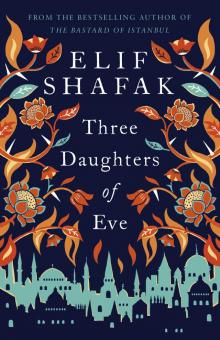 Three Daughters of Eve
Three Daughters of Eve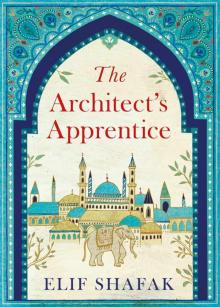 The Architect's Apprentice
The Architect's Apprentice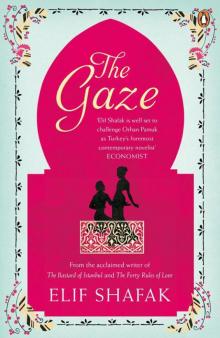 The Gaze
The Gaze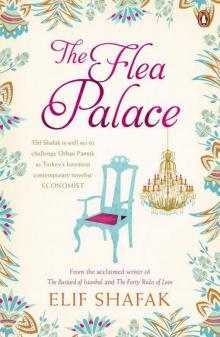 The Flea Palace
The Flea Palace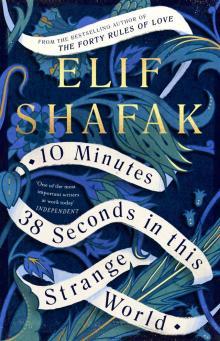 10 Minutes 38 Seconds in this Strange World
10 Minutes 38 Seconds in this Strange World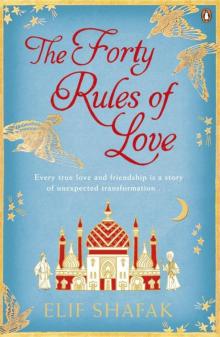 The Forty Rules of Love
The Forty Rules of Love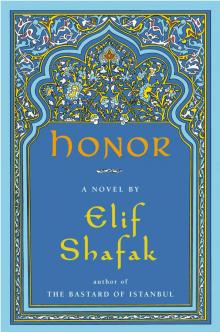 Honor
Honor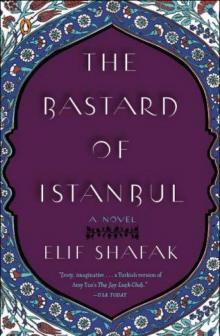 The Bastard of Istanbul
The Bastard of Istanbul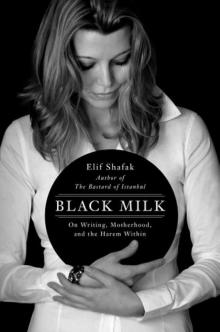 Black Milk
Black Milk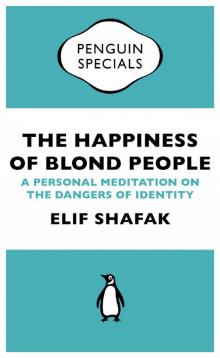 The Happiness of Blond People (Penguin Specials)
The Happiness of Blond People (Penguin Specials)